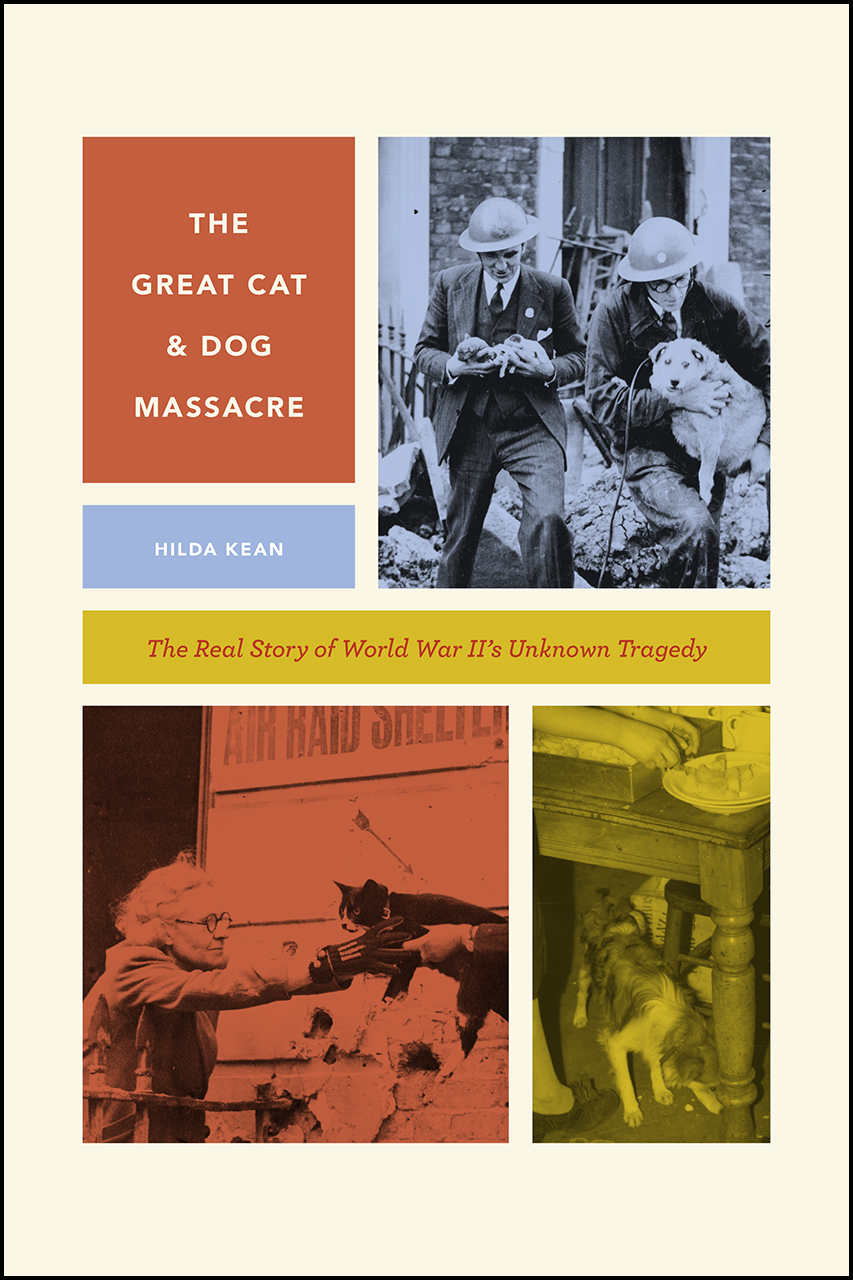by COLIN DICKEY
 IMAGE/University of Chicago Press
IMAGE/University of Chicago Press
1939, the citizens of London set about killing their pets. During the first four days of World War II, over 400,000 dogs and cats — some 26 percent of London’s pets — were slaughtered, a number six times greater than the number of civilian deaths in the UK from bombing during the entire war. It was a calm and orderly massacre. One animal shelter had a line stretching half a mile long with people waiting to turn their animals over to be euthanized. Crematoriums were overrun with the corpses of beloved dogs and cats; the fact that they could not run at night due to blackout conditions mandating the extinguishing of all manmade light sources so as not to aid German bombers’ navigation, further added to the backlog. Animal welfare societies ran out of chloroform, and shelters ran out of burial grounds. One local sanatorium offered a meadow, where half a million pets’ bodies were interred.
None of this was done out of any real necessity. Supplies were not yet scarce. The German blitzkrieg was not yet underway, and wouldn’t begin in earnest until September of the following year. Nor did the British government issue directives or instructions telling its citizens to kill their pets for the greater good of the Empire. Rather, it was a mass action that arose, apparently spontaneously, by a populace terrified by the new reality of war.
Almost immediately, people realized what a mistake they had made. By November, the Times was lamenting that “there is daily evidence that large numbers of pet dogs are still being destroyed for no better reason than that it is inconvenient to keep them alive — which, of course, is no reason at all, but merely shows an owner’s inability to appreciate his obligations towards his animal.” The BBC’s first disc jockey, Christopher Stone, likewise railed against the massacre on his popular radio program that same month, arguing that “[t]o destroy a faithful friend when there is no need to do so, is yet another way of letting the war creep into your home.” By then, the wholesale killing of pets had abated, and many of the animals who survived those first four days would last through the war. But the damage had already been done.
Los Angeles Review of Books for more
